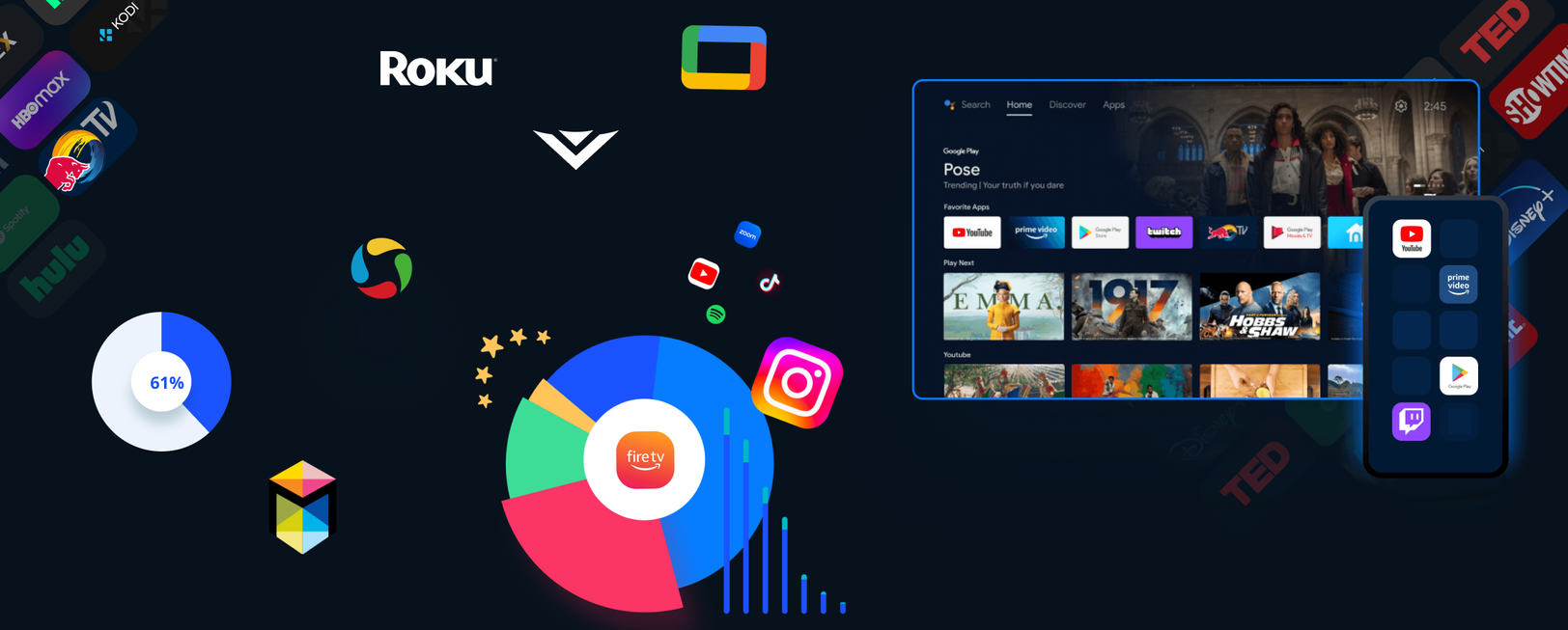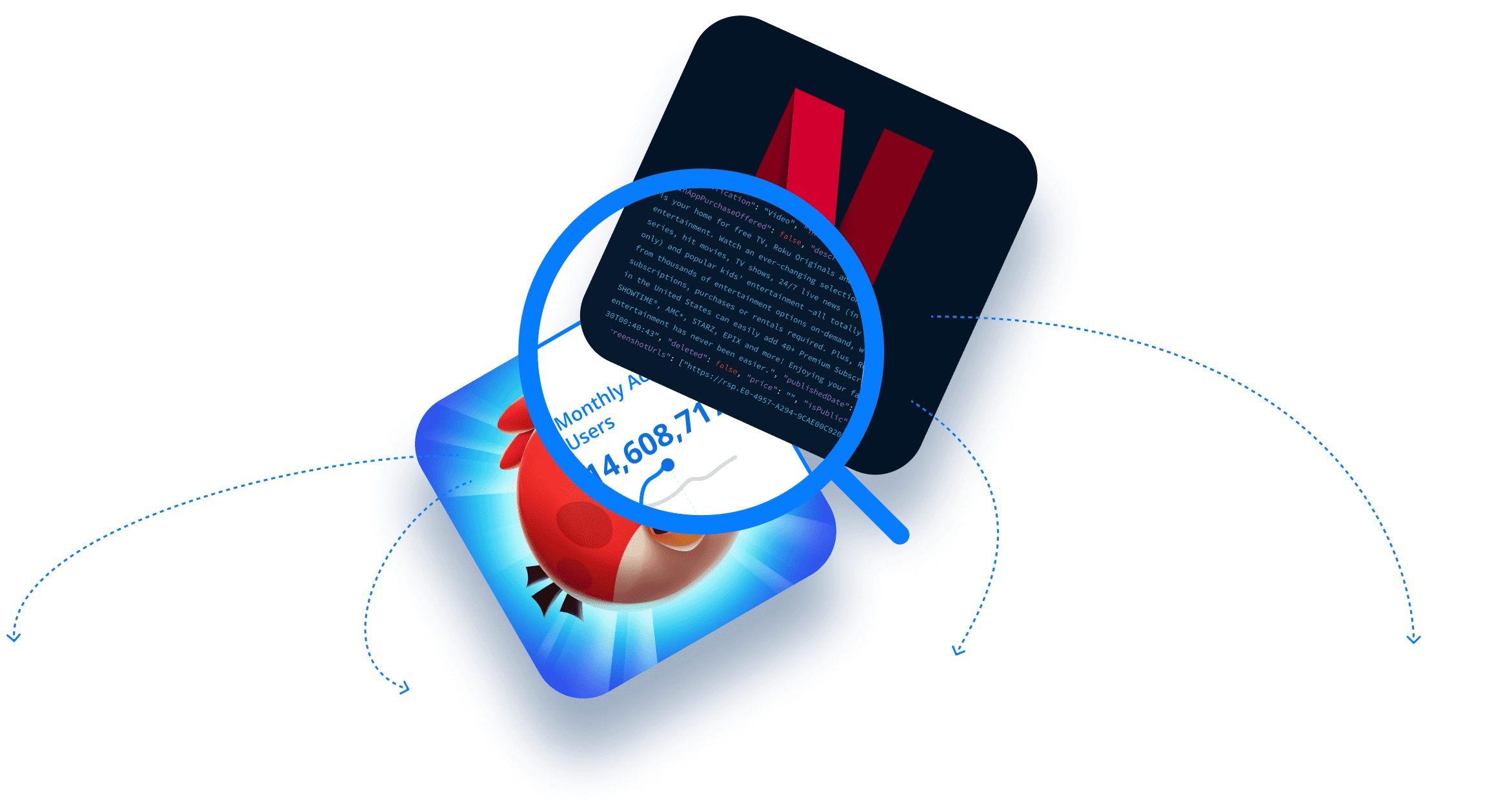X-Mode Social Inc., an American company specialized in location data, has come under intense scrutiny in recent months for selling user-generated location data collected by their software development kit (SDK) to defense contractors that work with the US military.
According to Vice’s tech blog Motherboard, the US military has been buying granular movement data harvested from seemingly innocuous apps that integrate X-Mode’s SDK. While the most popular app among those reviewed by Vice was Muslim Pro, a Muslim prayer app with more than 98 million downloads, others include a Muslim dating app, a popular Craigslist app, an app for following storms, and a digital bubble level.
Suffice it to say, this practice has drawn attention to an apparently alarming loophole in US privacy law. Indeed, in 2018, the Supreme Court of the United States held that government agencies required a warrant to compel phone companies to turn over user-generated location data. No warrant is necessary, however, if the government buys similar data from a data broker like X-Mode. This is because consumers actually opt in to such uses of their data by accepting an app’s terms of service.
Nevertheless, while Muslim Pro announced it would stop sharing data with X-Mode, Apple and Google have gone a step further. According to the Wall Street Journal, the tech giants will ban X-Mode from collecting any location information drawn from mobile devices running their operating systems. The Journal reports moreover that Google and Apple have told developers they must remove X-Mode’s SDK from any app present in their app stores or risk losing access to the respective stores.
Of course, practically anyone in the tech industry can tell you that X-Mode isn’t the only data broker out there. They may be in the spotlight right now, but there are actually millions of apps capable of tracking and selling user-generated location intelligence.
This Is Where 42matters Can Be of Service
With the 42matters Explorer platform, you’ll be able to determine which apps and SDKs can be used to generate monetizable location intelligence.
Here’s How to Check Which Apps Leverage Location Tracking
Step 1: Launch the 42matters Explorer
Open the 42matters ‘Launchpad’ and click either ‘Android Apps’ or ‘iOS Apps’ in the section titled ‘Explorer.’

Step 2: Tick the Box Next to ‘Permissions’
From the Explorer dashboard, tick the box next to ‘Permissions’ in the ‘Technology Insights’ section of the left-hand toolbar.
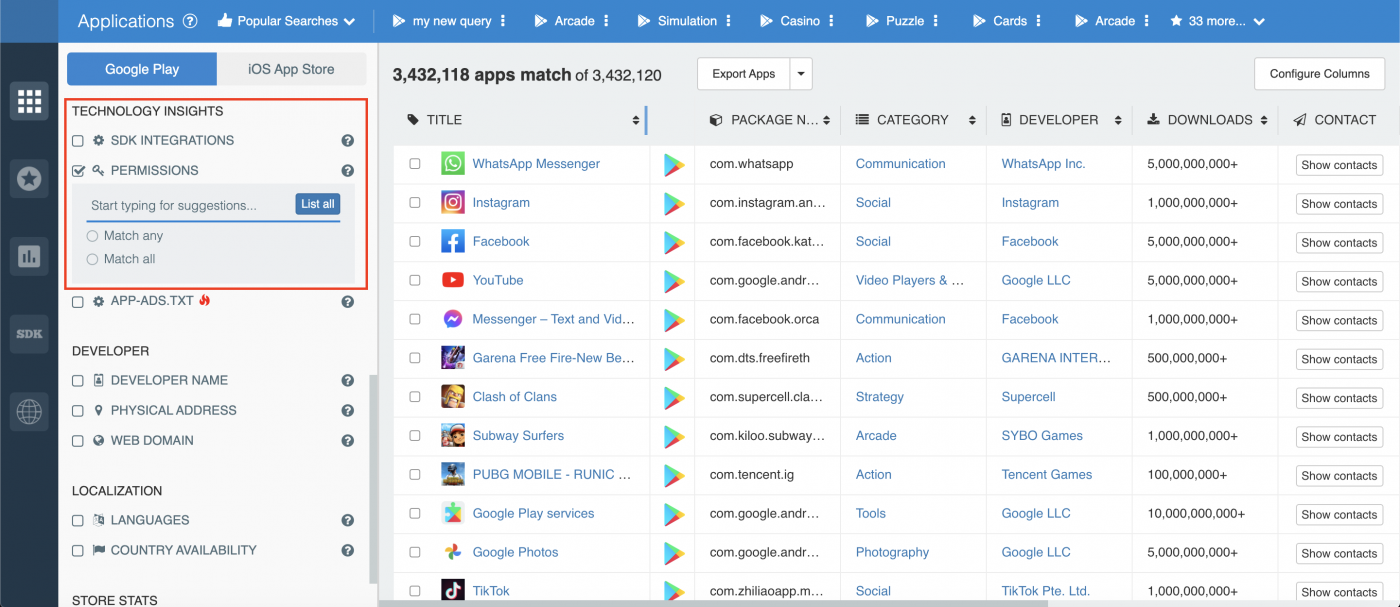
From there, you can search for a specific location-tracking permission in the search bar, or browse all permissions by clicking ‘List all’:
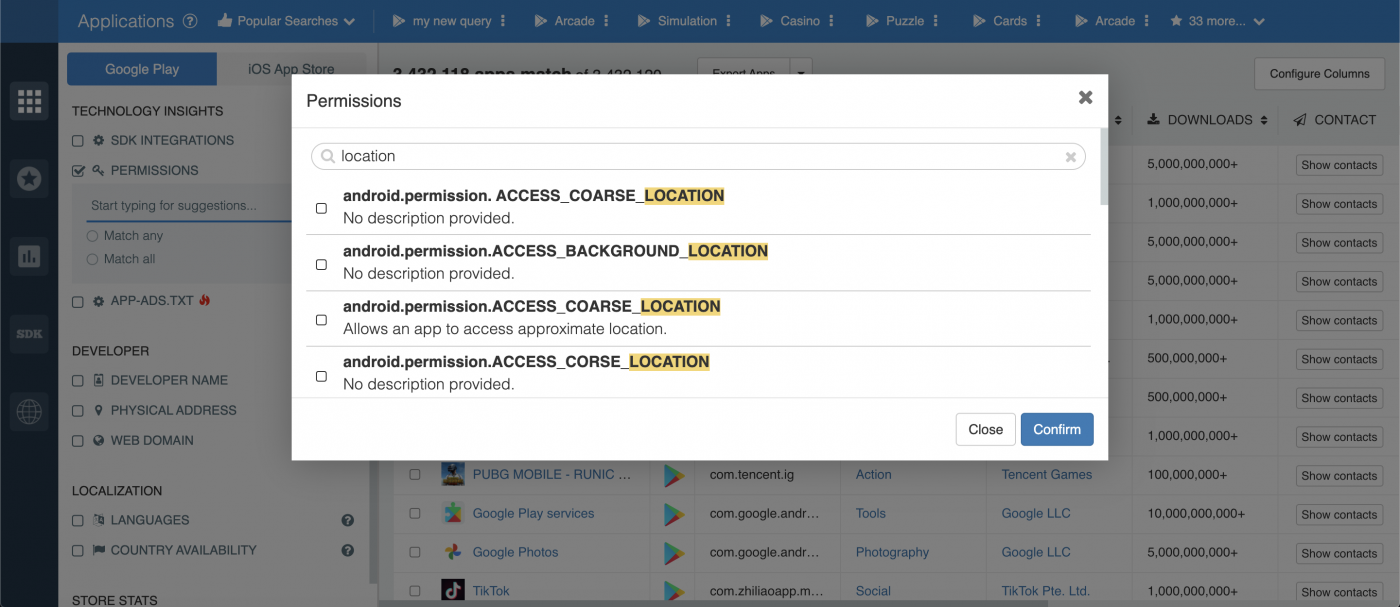
Step 3: Select the Relevant Location Permissions
Once you’ve selected all relevant location permissions, click confirm. If you’ve selected “Match any,” you’ll get a list of all apps that use any of the relevant permissions. If you’ve selected “Match all,” you’ll get a list of apps that use all of the relevant permissions.
Here’s what happens when you click “Match any” for the following Android permissions: ACCESS_COARSE_LOCATION, ACCESS_COARSE_LOCATION, ACCESS_CORSE_LOCATION, ACCESS_COURSE_LOCATION, ACCESS_FINE_LOCATION, and ACCESS_LOCATION.
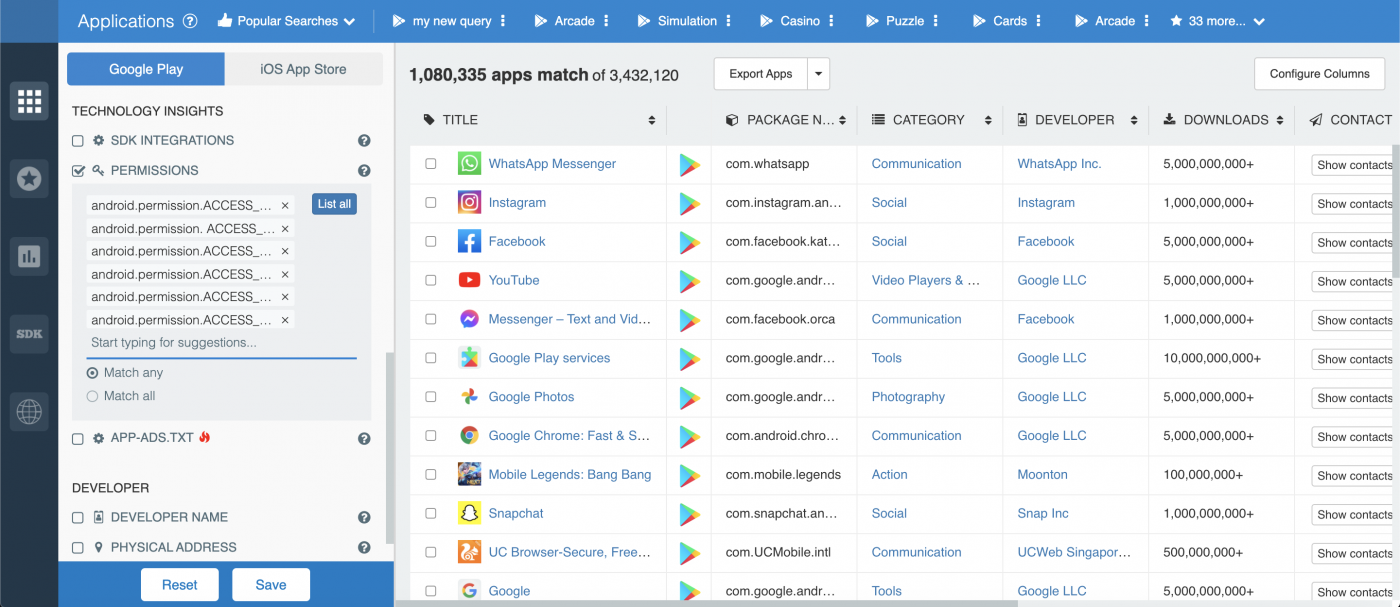
These apps all track user location to some degree or another.
For a complete list of Android and iOS apps that track device location, set up a meeting!
Here’s How to Check Which Apps Have Integrated the X-Mode SDK
Step 1: Launch the 42matters Explorer
Same as above. Open the 42matters ‘Launchpad’ and click either ‘Android Apps’ or ‘iOS Apps’ in the section titled ‘Explorer.’

Step 2: Tick the Box Next to ‘SDK Integrations’
From the Explorer dashboard, tick the box next to ‘SDK Integrations’ in the ‘Technology Insights’ section of the left-hand toolbar.
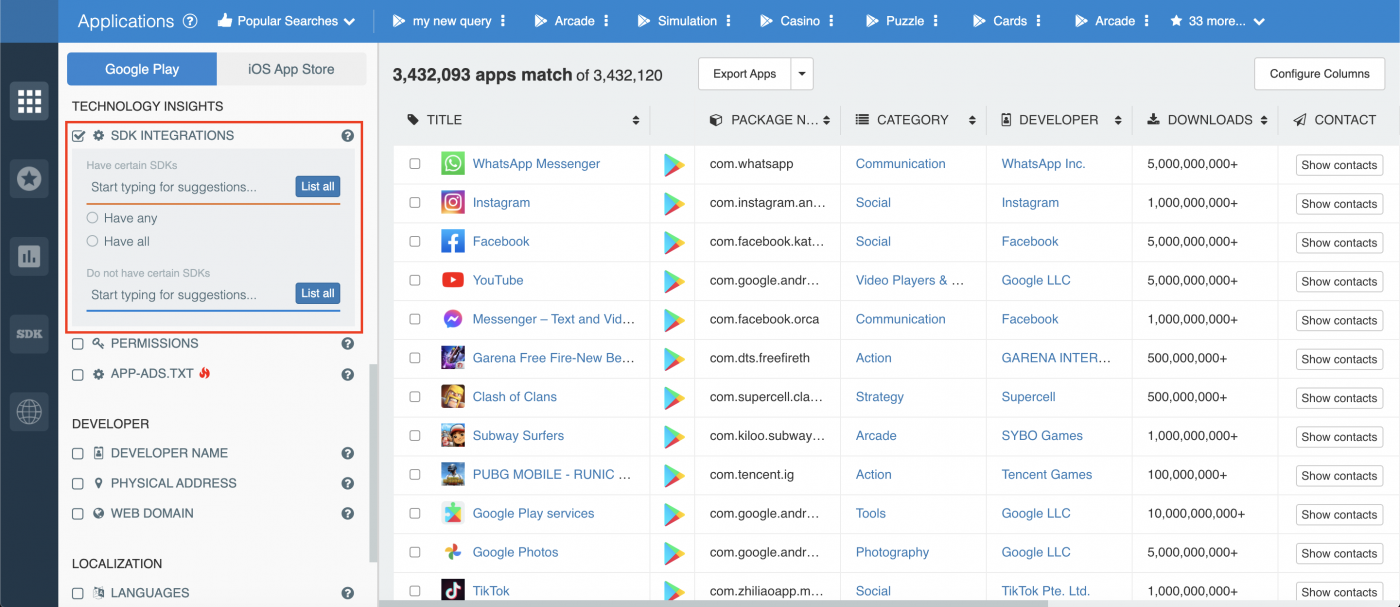
Once again, you can search for a specific SDK in the search bar, or browse all SDKs by clicking List all:
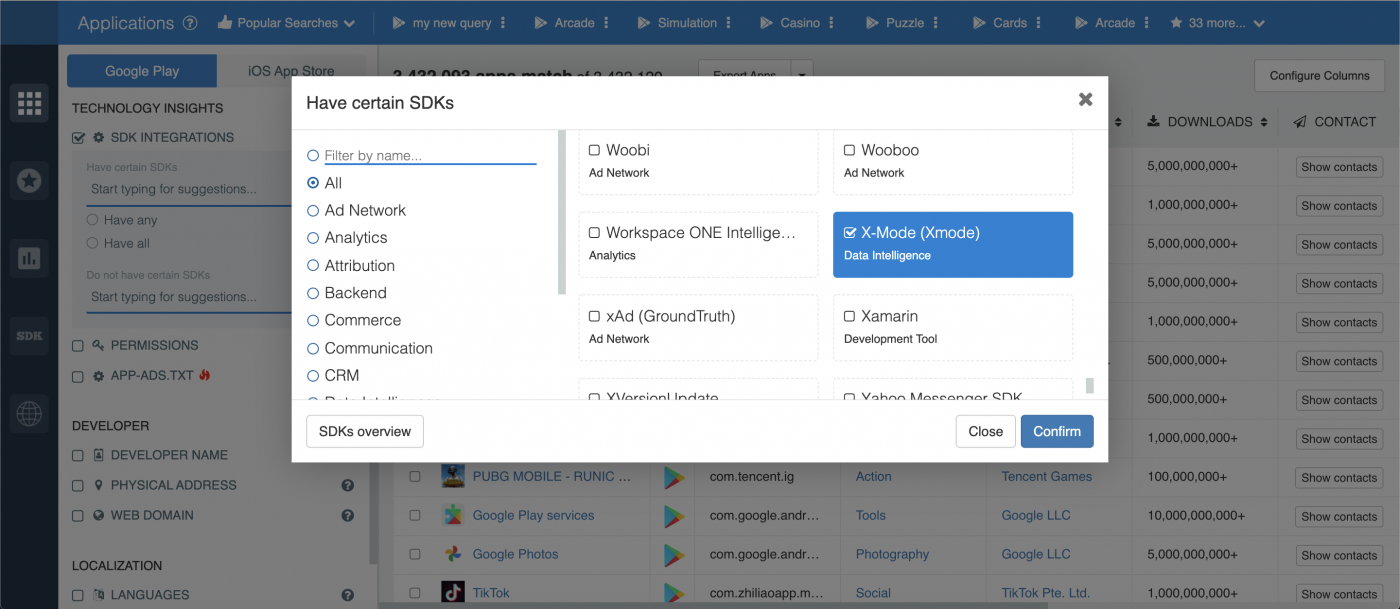
Step 3: Filter for Apps Integrating the X-Mode SDK
Tick the box next to the X-Mode SDK (as above), then click confirm. This will yield the following results:
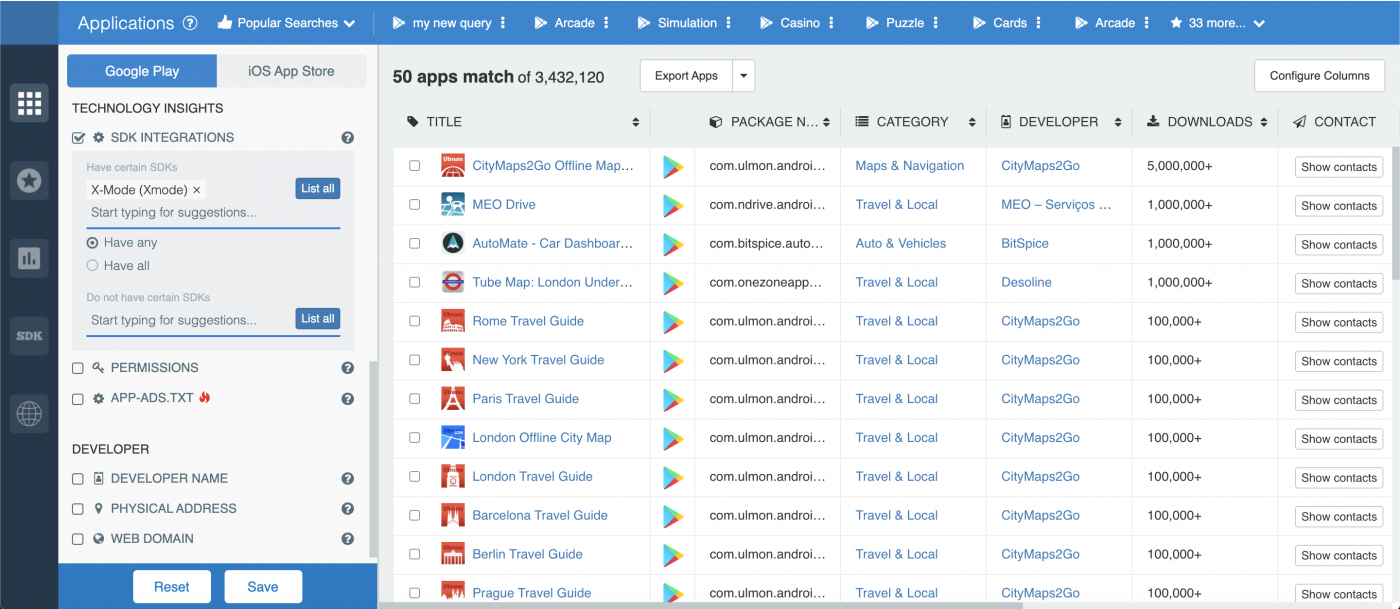
Keep in mind, the data above was pulled well after Google and Apple banned the X-Mode SDK from their platforms. So, unsurprisingly, there are very few Android apps that currently integrate the X-Mode SDK. The developer CityMaps2Go seems particularly reliant on the SDK, claiming 41 of the remaining 50 X-Mode-enabled apps.
Big Data and the Future of Privacy
In 1776, John Adams wrote that it had been the British right to search houses without justification that sparked America’s fight for independence. This grievance, now enshrined in the 4th amendment to the United States Constitution, is premised upon the notion that privacy is not merely something which governments grant out of the kindness of their legislatures, but something which precedes government.
However, the personal sphere over which one can reasonably claim a right to privacy now extends well beyond the parlors and drawing rooms of Monticello and Mount Vernon. Our homes are no longer the only spaces in need of protection. Conversations that once took place behind closed doors now occur over a complicated latticework of broadband cellular and wireless networks and are facilitated by countless devices, digital platforms, and mobile applications.
While efforts have been made in both the private and public sphere to protect personal data and digital privacy (see: the European Union’s General Data Protection Regulation; GDPR for short), the rapidity of innovation is proving a formidable foe to regulators and entrepreneurs alike. As such, the future of privacy depends on consumers coming to grips with the old adage — if you're not paying for the product, you are the product.
More App Insights from 42matters
At 42matters, we provide app and SDK data, insights, and analytics via a host of useful APIs, file dumps, and the 42matters Explorer. This includes:
- Technical insights, including SDKs, permissions, and app-ads.txt
- Interactive elements (i.e. what information an app has access to, what it can do with it, and whether there's user-generated content inside it that may be beyond publisher control; the ability to share device location is a common interactive element).
- Required capabilities (i.e. the capabilities that are required for an app to function; map apps, for instance, often require access to a phone’s GPS capabilities.)
- Developer details
- Top charts, downloads, ratings, and reviews
- Categories, genres, and IAB categories
- And more
The 42matters Explorer is an app market research tool that offers a comprehensive look at app trends and statistics. This includes data on both iOS and Android apps. Moreover, our APIs facilitate programmatic access to app intelligence data from both Google Play and the Apple App Store, as well as the Amazon Appstore, Tencent Appstore, Apple TV App Store, Fire TV, and the Roku Channel Store.
To learn more about 42matters, schedule a meeting with one of our app market experts. We’ll walk you through everything.


